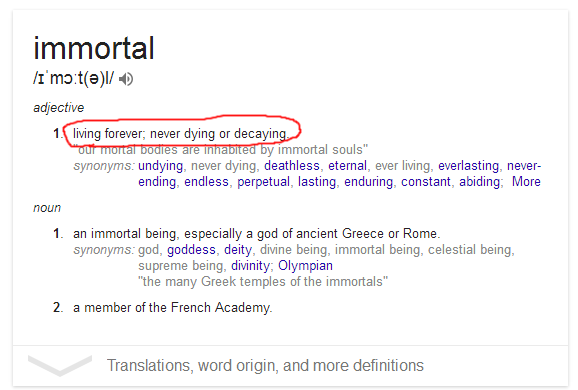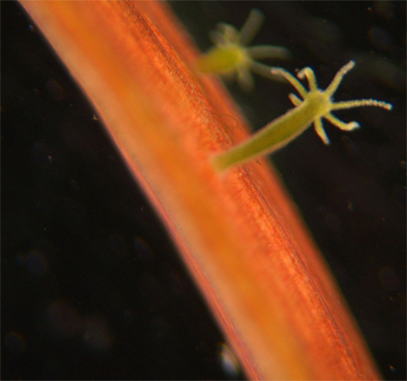The basic meaning of immortal, by etymology and usage, is not subject to death.
But people decide how words are used and basic, etymological meanings can be transferred to new situations and pick up new meanings and usages.
The "dictionary definitions" (from the Oxford English Dictionary OED) of immortal include:
A. adjective:
1 a. Not mortal; not liable or subject to death; deathless, undying; living for ever.
b (transferred meaning) Pertaining to immortal beings or immortality; heavenly, divine.
2 a. In wider sense: Not liable to perish or decay; everlasting, imperishable, unfading, incorruptible.
b. special usage. Of fame, or of famous works or their authors: Lasting through an unlimited succession of ages; that will not fade from the memory of men; remembered or celebrated through all time.
B. noun
1. An immortal being; one not subject to death. In plural, especially as a title for the gods of classical mythology.
I have included all but obsolete or repetitious information.
The OED, as good dictionaries do, describes usage; it does not prescribe usage.
I am not an avid follower of either vampires, zombies (not even those near Longbourn, Hertfordshire) or the like or of Greek and Roman gods. So I have to say, while acknowledging the basic meaning of immortal, people are free to use the word "as they like."
It is also the case that such usage merges into beliefs about death, the place of the dead, the so-called undead, life after death, the state or activity of the body and soul after death, and basically into metaphysics.
What the preternatural and the gods do, and what words are used to describe them, are up to speakers of the language. A god could, presumably, die (submit to death or 'undergo destruction') voluntarily–which is what Christianity teaches regarding the divine man Jesus the Christ.


